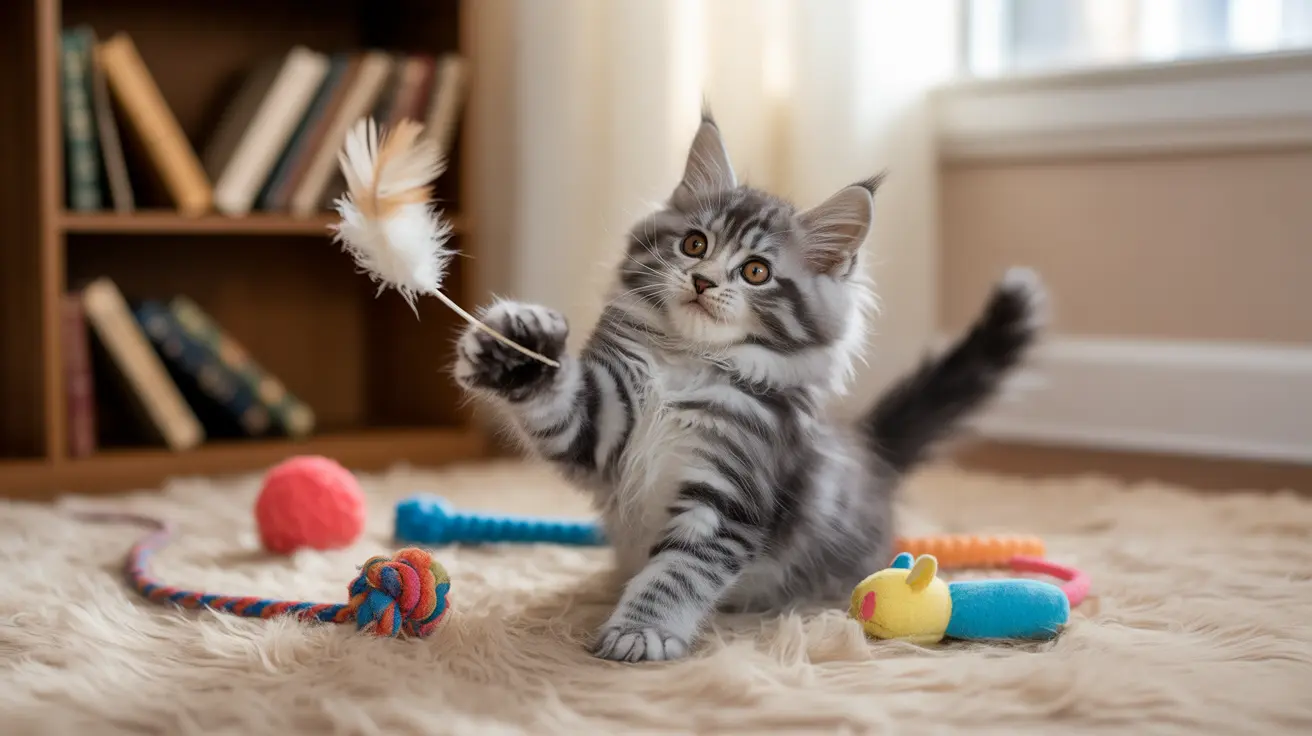Welcoming a 3 month old kitten into your home is an exciting time filled with playful moments and important milestones. At this crucial age, your kitten is transitioning from early kittenhood to a more independent juvenile stage, requiring specific care to ensure healthy development. Let's explore everything you need to know about caring for your 3-month-old feline friend.
Physical Development and Growth Expectations
At three months old, kittens experience rapid physical development. Most healthy kittens weigh between 2.8 and 3.3 pounds, though this can vary by breed. Their coordination improves dramatically during this period, enabling them to perform impressive athletic feats like jumping and climbing with increasing precision.
You'll notice your kitten's baby teeth starting to fall out as adult teeth emerge. This process can cause mild discomfort, so providing appropriate chew toys is essential. Their muscles are developing rapidly, and you'll see increasing strength and agility in their movements.
Nutrition Requirements for Growing Kittens
Proper nutrition is crucial for your 3-month-old kitten's development. They should be eating high-quality kitten food specifically formulated for their growth needs. Feed them 3-4 small meals daily to support their high energy requirements and rapid growth.
- High-protein kitten food (wet and/or dry)
- Always available fresh water
- Scheduled feeding times to establish routine
- Appropriate portion sizes to prevent overfeeding
Essential Healthcare and Vaccinations
This age marks a critical period for healthcare interventions. Your kitten should be receiving their core vaccinations, including the FVRCP series and possibly their first rabies shot, depending on local regulations. Regular deworming treatments are also essential.
- Monitor growth and development
- Complete vaccination series
- Check for parasites
- Discuss spaying/neutering timing
- Address any health concerns
Behavioral Development and Training
Three-month-old kittens are highly receptive to training and socialization. This is the perfect time to establish good behaviors and prevent potential issues. Focus on positive reinforcement techniques to teach appropriate play and interaction.
- Litter box habits
- Appropriate scratching surfaces
- Gentle play without biting
- Basic commands and boundaries
- Social interaction with humans and other pets
Creating the Perfect Environment
Your kitten needs a safe, enriching environment to thrive. Set up designated areas for essential activities and ensure your home is properly kitten-proofed. Provide multiple comfortable resting spots, scratching posts, and interactive toys to keep them mentally and physically stimulated.
Frequently Asked Questions
What are the key developmental milestones for a 3-month-old kitten?
At three months, kittens should have good coordination, be using the litter box consistently, and show increasing independence. They'll be losing baby teeth, developing adult coat colors, and mastering basic physical skills like jumping and running.
How often should I feed my 3-month-old kitten and what type of food is best?
Feed your 3-month-old kitten 3-4 times daily using high-quality kitten food. Choose a mix of wet and dry food specifically formulated for kittens, as these contain the higher protein and calorie content needed for proper growth.
Which vaccinations and health checks does a 3-month-old kitten need?
Three-month-old kittens need their FVRCP vaccine series, possible rabies vaccination, and regular deworming treatments. Monthly veterinary check-ups are recommended to monitor growth and address any health concerns.
How can I properly socialize and train my 3-month-old kitten to prevent behavioral issues?
Focus on positive reinforcement, provide plenty of supervised playtime, and expose your kitten to various people, sounds, and experiences. Establish consistent rules and redirect unwanted behaviors to appropriate outlets.
What signs of illness or health problems should I watch for in a 3-month-old kitten?
Monitor for signs like lethargy, loss of appetite, diarrhea, vomiting, respiratory issues, or changes in behavior. Contact your veterinarian immediately if you notice any concerning symptoms, as kittens can decline rapidly when ill.
Conclusion
Caring for a 3-month-old kitten requires attention to their physical, nutritional, and social needs. By following these guidelines and maintaining regular veterinary care, you'll help your kitten grow into a healthy, well-adjusted adult cat. Remember that each kitten develops at their own pace, so consult with your veterinarian about any specific concerns regarding your kitten's growth and development.






